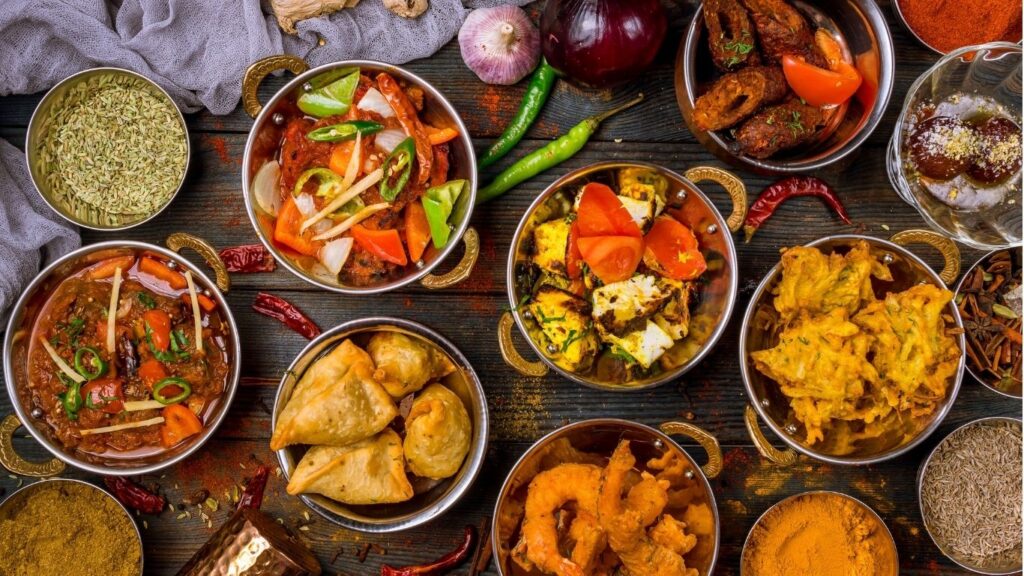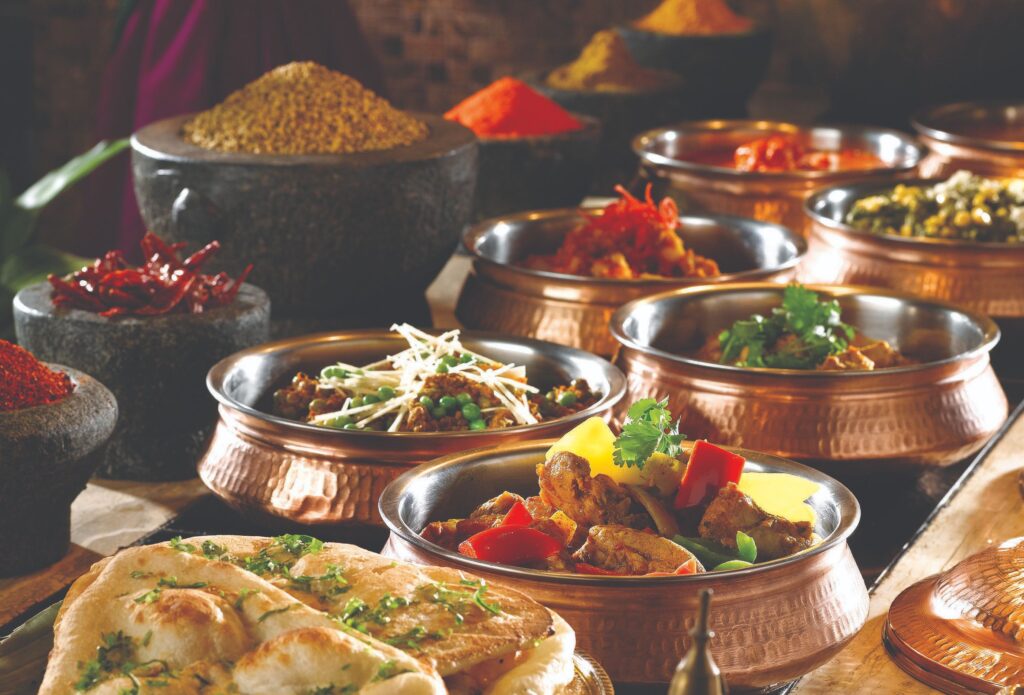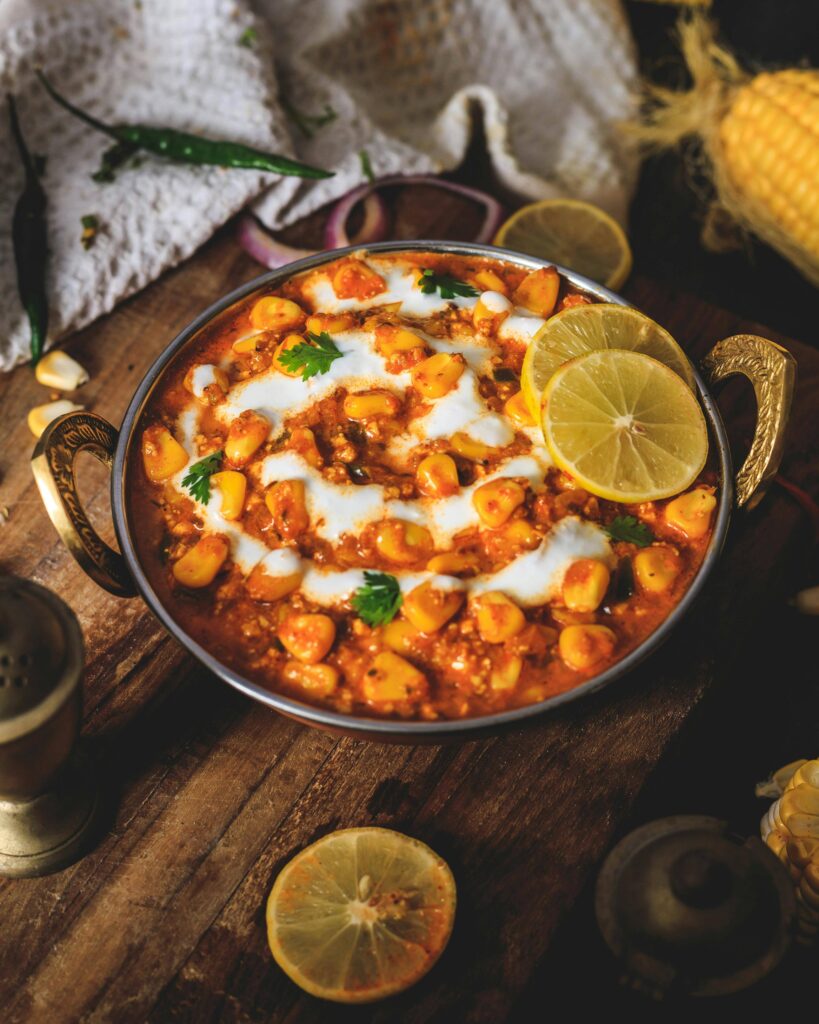
Indian cuisine is a symphony of flavors, aromas, and textures, a testament to the country’s rich cultural heritage and diverse regional traditions. Beyond its tantalizing taste, Indian food offers a profound connection to health, wellness, and spirituality. Rooted in the ancient wisdom of Ayurveda and the concept of “sattvic” food, it nourishes the body and uplifts the soul.
Ayurveda, India’s traditional system of medicine, views food as a powerful tool for healing and maintaining balance. It emphasizes the importance of choosing foods that align with one’s unique constitution (dosha) and the changing seasons.
Six Tastes: Ayurveda recognizes six primary tastes – sweet, sour, salty, pungent, bitter, and astringent – and recommends incorporating all of them in moderation for a balanced diet.

Ayurveda: The Science of Life and Food
Digestive Fire (Agni): A strong digestive fire is essential for optimal health. Ayurveda suggests eating warm, cooked foods, spices like cumin and ginger, and avoiding heavy, processed foods.
Seasonal Eating: Eating fresh, seasonal produce that is grown locally is encouraged to ensure maximum nutritional value and harmony with nature.
Sattvic Food: Nourishment for the Body and Mind
Sattvic food, often referred to as “pure” food, is a central concept in Ayurvedic and yogic traditions. It encompasses foods that are considered light, fresh, and easily digestible. Sattvic foods are believed to promote clarity, calmness, and overall well-being.
Examples of Sattvic Foods: Fresh fruits and vegetables, whole grains, legumes, nuts, seeds, dairy products (in moderation), and herbs.
Foods to Avoid: Meat, fish, eggs, onions, garlic, processed foods, refined sugars, caffeine, and alcohol.

The Spiritual Significance of Food in India
Food is deeply intertwined with spirituality in India. It is offered to deities as prasad (blessed food), shared during festivals, and used in religious ceremonies. The act of preparing and consuming food is often seen as a sacred ritual.
Health Benefits of Indian Cuisine
Rich in Spices: Turmeric, cumin, coriander, ginger, and other spices are not only flavorful but also boast powerful anti-inflammatory and antioxidant properties.
Abundance of Vegetables: Many Indian dishes are vegetable-based, providing a wide array of nutrients and fiber.
Focus on Whole Grains: The use of whole grains like brown rice, millet, and quinoa supports healthy digestion and sustained energy levels.
Limited Processed Foods: Traditional Indian cuisine favors fresh, whole ingredients over processed foods, reducing the intake of unhealthy fats, sugars, and additives.
Conclusion
Indian cuisine is a culinary adventure that delights the senses and nourishes the body, mind, and spirit. By embracing the principles of Ayurveda and incorporating sattvic foods into your diet, you can experience the transformative power of food as medicine.






























